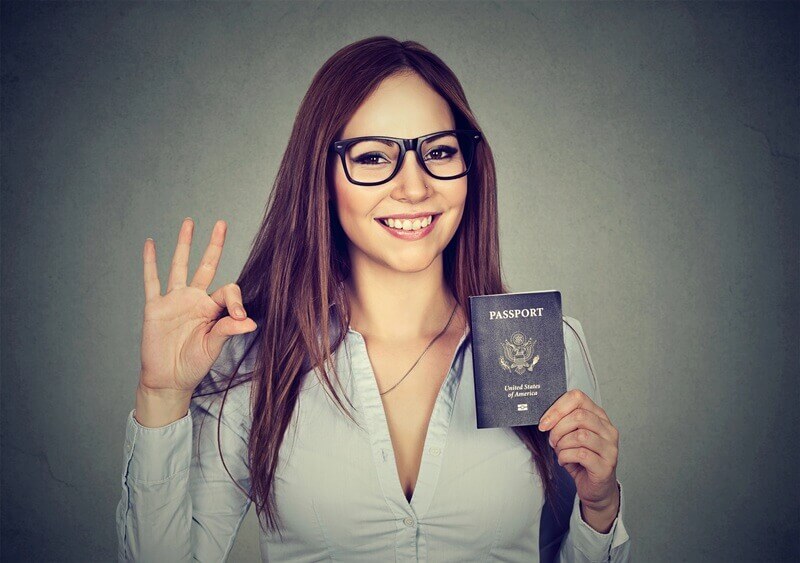Family shapes the foundation of every community, and U.S. immigration acknowledges this by creating pathways to bring loved ones together. Houston residents can help certain relatives obtain permanent residency. This process requires thoughtful planning and a clear understanding of each step.
Sponsoring family members, including spouses, children, parents, or siblings, allows loved ones to reunite. In this article, discover how Houston residents can meet the requirements for family-based immigration. Learn about eligibility, filing forms, and addressing challenges while using local resources to simplify the process.

What Is Family-Based Immigration For U.S. Citizens?
The U.S. immigration system allows citizens to sponsor certain loved ones for lawful permanent residency or Green Cards. Two pathways are available for sponsoring relatives: Immediate Relatives Category and Family Preference Category.
Immediate Relatives
Under this category, U.S. citizens can petition for their husbands or wives, ensuring they qualify for this category. Unmarried children under 21 also fall under this classification, offering them faster processing times than other categories. Additionally, U.S. citizens at least 21 can sponsor their parents, making it possible to reunite across generations.
This category stands out because it is not subject to an annual Visa cap. As a result, immediate relatives typically experience shorter waiting periods. This streamlined approach reflects the priority placed on keeping close family members together.
Family Preference Categories
Family preference categories cover other relationships and are subject to annual limits. As a result, they often involve long waiting periods. These are generally limited to 226,000 Visas annually, making the process more competitive. Relationships with U.S. citizens under this Visa category include:
- First Preference (F1): Unmarried children over 21 of U.S. citizens.
- Third Preference (F3): Married children of U.S. citizens.
- Fourth Preference (F4): Siblings of U.S. citizens, provided the sponsor is at least 21 years old.
While family preference categories involve additional challenges, they still provide a path for loved ones to join you in the United States. Understanding the eligibility requirements is the first step in determining who qualifies under these categories. Meeting the outlined criteria allows you to move forward confidently with the sponsorship process.
What Are The Requirements To Sponsor A Relative?
Building a life in the United States often means wanting loved ones nearby. Sponsorship offers an opportunity to keep that connection, but not everyone can take this path. Understanding who can start this process is the first step toward bringing those ties closer.
Citizenship
Sponsorship opportunities in the United States vary based on legal status. U.S. citizens enjoy broad privileges, such as sponsoring spouses, children, parents, and siblings. Compared to Green Card holders or other Visa categories, they offer more flexibility and options.
Age Requirements
Age determines whether you can meet eligibility requirements. Sponsors can file a petition for a spouse at any age but must reach 18 to sign the required Affidavit of Support. To bring in parents or siblings, you must turn 21 before starting the process. These rules ensure you can handle financial responsibilities effectively.
Financial Stability
Sponsors must prove they can financially support their relatives to prevent them from relying on public assistance. This is done by submitting Form I-864, the Affidavit of Support, and demonstrating an income that meets at least 125% of the Federal Poverty Guidelines. If your income falls short, you can partner with a joint sponsor.
Residency Considerations
U.S. sponsors must maintain their principal residence, or domicile, within the United States. This requirement shows a commitment to living in the country for the foreseeable future. In Houston, sponsors benefit from local resources and access to USCIS offices, making the process more convenient.
Understanding who qualifies as a sponsor lays the foundation for beginning the immigration process. The next step is knowing how to petition for different relationships, as the process varies based on the type of relative.
How Can You Petition For Different Family Relationships?
Bringing loved ones to the United States involves different processes based on your relationship with them. The requirements and steps for sponsoring a spouse, child, parent, or sibling vary, making it vital to understand what applies to each category. Knowing these details helps you start the process with confidence.
Sponsoring A Spouse
Bringing a spouse to the United States involves proving the authenticity of your marriage and filing specific forms. The process begins with Form I-130 (Petition for Alien Relative), which establishes your relationship. Along with the form, you’ll need to provide:
- A marriage certificate.
- Proof of joint financial accounts, such as bank statements.
- Photos or other evidence of your life together as a couple.
The process may look slightly different depending on whether your spouse is in the United States or abroad. For example, adjustment of status (AOS) happens at a local USCIS office. As the sponsor, you attend the interview alongside your spouse to verify the relationship.
In consular processing, the interview occurs at a U.S. embassy or consulate in the spouse’s home country. Only the spouse attends this appointment, and officials review the relationship and determine Green Card eligibility.
Sponsoring Children
Sponsoring children involves determining their eligibility and preparing the necessary documentation to establish the relationship. The process depends on their age, marital status, and category under immigration law. Under “child,” you can sponsor:
- Biological children: Children born to a U.S. citizen sponsor, whether born in wedlock or not.
- Stepchildren: The marriage creating the stepparent-stepchild relationship must occur before the child’s 18th birthday.
- Adopted children: The adoption must be official before the child reaches age 16.
- Children born through Assisted Reproductive Technology (ART): Includes children born through surrogacy or other ART methods when the legal parent-child relationship exists.
If you live in Houston, your child may also qualify for a nonimmigrant K-4 Visa, allowing them to live and work in the U.S. while the Green Card petition is pending. This option provides stability and an opportunity to be with family during the sponsorship process.
Sponsoring Parents
U.S. citizens aged 21 or older can petition to bring their parents to the United States. The process starts with filing Form I-130, which confirms the parent-child relationship. To demonstrate eligibility, you must provide proof of citizenship, such as birth certificates, naturalization certificates, or U.S. passports.
Parents living outside the United States must complete consular processing in their country. They submit additional documents to the National Visa Center and attend an interview at a U.S. embassy or consulate in their home country. Officials review the relationship and required documents before granting the immigrant Visa.
Sponsoring Siblings
Sponsoring a sibling requires more time due to Visa backlogs in the F4 family preference category. To begin the process, you must file Form I-130 and provide proof of your shared parentage. While the waiting period can span several years, early filing is critical for future reunification.
The sponsorship process raises many questions about timelines, requirements, and next steps. Clear information avoids delays and keeps everything on track. Answering common concerns simplifies the journey and creates a more straightforward path to success.
What Are the Most Common Questions About Sponsorship?
The sponsorship process raises many questions, and people often share similar concerns. Many focus on timelines, financial requirements, and how to handle potential setbacks. Addressing these topics provides clarity and helps sponsors move forward with confidence.
How Long Does The Process Take?
Processing times depend on the relationship between the sponsor and the beneficiary. Immediate relatives, such as spouses and minor children, experience shorter wait times because no annual Visa limits apply to their category. Family preference categories, such as siblings or married children, often face significant delays due to Visa caps and long backlogs.
Can I Sponsor Without Meeting Financial Requirements?
Citizens without sufficient income can still move forward by using a joint sponsor. This individual shares the financial responsibility and must meet the income threshold independently. With this option, you can ensure the petition meets financial requirements despite income limitations.
What Can I Do If Officials Deny My Petition?
Denials don’t end the process entirely. Petitioners can appeal the decision or reapply depending on the specific reasons for the refusal. Reviewing the denial notice and resolving any identified issues strengthens the case for future success.
Clear answers help resolve concerns and prevent mistakes during the process. Sponsoring a relative involves many steps, but legal professionals offer the support needed to simplify the journey. A skilled legal team helps families overcome obstacles and work toward reuniting successfully.
How Can Houston Texas Immigration Lawyers Help Your Family?
 Bringing loved ones to the U.S. is a significant step, and we help make the process easier. Houston Texas Immigration Lawyers manage all sponsorship, from filing petitions to preparing for interviews. Our team simplifies the process, allowing you to focus on reuniting with your family.
Bringing loved ones to the U.S. is a significant step, and we help make the process easier. Houston Texas Immigration Lawyers manage all sponsorship, from filing petitions to preparing for interviews. Our team simplifies the process, allowing you to focus on reuniting with your family.
We collaborate with you to find solutions for your specific situation. Whether you need help completing forms, meeting financial requirements, or understanding the following steps, our team guides you. With our support, you can move forward confidently.
Reuniting with loved ones in Houston is both a meaningful and achievable goal. The sponsorship process involves key steps like meeting eligibility requirements, completing forms such as Form I-130, and providing evidence of the relationship. Immediate relatives have faster processing times, while family preference categories often face longer waits.
Sponsorship may present challenges, such as financial requirements or Visa backlogs, but careful planning and preparation help overcome these obstacles. Houston Texas Immigration Lawyers provide the guidance and support needed to simplify the process, allowing families to start a new chapter together in Houston.




